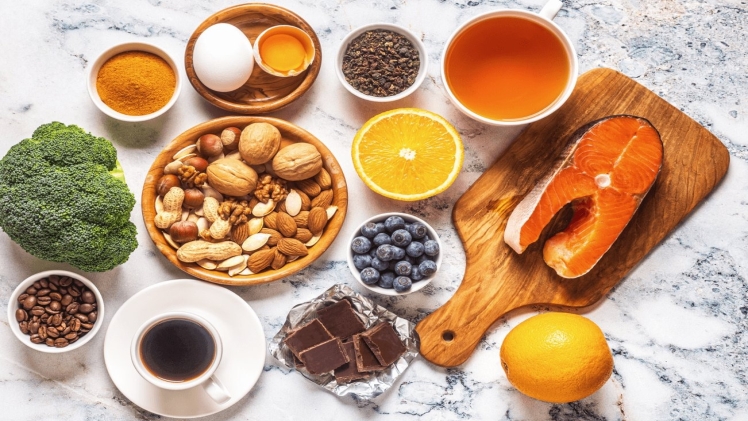Aging is a natural part of life, and while you cannot stop the clock, you can certainly influence how you age. One key factor in promoting healthy aging is nutrition. The food you eat plays a significant role in how you feel, look, and function as you grow older. This article will cover essential nutrition tips to support healthy aging and help you maintain a vibrant and active lifestyle as you get older.
1. Prioritize a Balanced Diet
Along with a consistent skincare routine with an anti aging treatment, a balanced diet is the foundation of healthy aging. It should include a variety of nutrient-rich foods like fruits and veggies. Lean proteins alongside whole grains and healthy fats are also important to incorporate. This variety ensures you get a wide range of essential vitamins, minerals, and other nutrients that are crucial for your overall health and well-being.
2. Stay Hydrated
Proper hydration is essential for living a long, healthy life. One significant benefit of staying well-hydrated is the positive impact it has on the skin. When your body lacks proper moisture, it can result in a loss of skin elasticity, making fine lines and wrinkles more pronounced. The classic recommendation is to aim for approximately eight 8-ounce glasses of water a day, known as the “8×8 rule.” However, individual hydration needs can vary based on factors such as age, activity level, climate, and overall health. Consider these factors when hydrating.
3. Focus on Fiber
Fiber is a type of complex carbohydrate derived from plant-based foods that the human body can’t fully digest. It’s kind of like a broom for your digestive system, helping to keep things moving smoothly. Fiber is your friend when it comes to aging well. It aids in digestion, helps maintain a healthy weight, and can lower the risk of various chronic diseases. Include plenty of fiber-rich foods in your diet, such as whole grains, legumes, fruits, and vegetables. If you struggle with getting enough fiber, fiber supplements might be worth considering.
4. Get Your Protein
Protein is essential for preserving muscle mass, which tends to decline with age. When you think protein, you probably think steak, burgers, or maybe a roast. While red meat can be a valuable source of protein, excessive consumption can have adverse effects on health, particularly when it comes to aging. Red meat is typically high in saturated fats and may contribute to heart disease, elevated cholesterol levels, and increased inflammation. Lean sources of protein, like fish, poultry, tofu, and beans, can help maintain your muscle strength and support overall health.
5. Include Healthy Fats
While “all fats are bad” is a common misconception, healthy fat plays a critical role in maintaining overall health and promoting healthy aging. Healthy fats, particularly omega-3 and omega-6, are essential for cognitive function and maintaining healthy skin. They can also help reduce the risk of heart disease and inflammation, which can be particularly important as you age. These fats are found in avocados, nuts, olive oil, and certain fish, so make sure you incorporate them into your diet.
6. Limit Added Sugars and Processed Foods
While healthy fats are important to incorporate, it’s also necessary to limit unhealthy fats, often referred to as saturated and trans fats. These are found in processed and fried foods, baked goods, and some animal products. High sugar consumption and processed foods can contribute to weight gain and increase the risk of chronic diseases. To promote healthy aging, reduce your intake of added sugars and processed foods, and opt for whole, unprocessed options instead.
7. Remember Nutrient Density Over Calories
While fad diets and society perpetuate ‘snatched waists’ and calorie restrictions, those rules tend to relax as you age. This doesn’t mean you can simply let yourself go! However, rather than focusing on calories, shift your attention to nutrients. As you age, your metabolism may slow down, so it’s important to make every calorie count. Focus on nutrient-dense foods that provide vitamins and minerals without empty calories. This includes colorful fruits and vegetables, whole grains, and lean proteins.
8. Consider Nutritional Supplements
Sometimes, it can be challenging to meet all your nutritional needs through diet alone, especially as you age. Nutrient deficiencies are probably more common than you think. Calcium, iron, iodine, and vitamin B12 are often lacking in American diets. In the United States, about 42% of people aren’t getting as much vitamin D as what their body requires. And this number rises to 74% in older adults. If you aren’t taking a multivitamin, it might be time to start.
Consult with your healthcare provider to determine if that would interact with any medications you currently take. You should also ask them if you need any supplements to fill in potential nutrient gaps. They may also have general diet recommendations to ensure you age healthily.
Conclusion
Embracing a nutritious diet is a powerful way to support healthy aging and enhance your quality of life. By prioritizing a balanced diet, staying hydrated, and making smart food choices, you can maintain your vitality, cognitive function, and overall well-being. Remember that it’s never too late to start making these positive changes and enjoying the benefits of a healthy and vibrant life. Taking care of yourself will make the aging process more enjoyable Netizens report.

